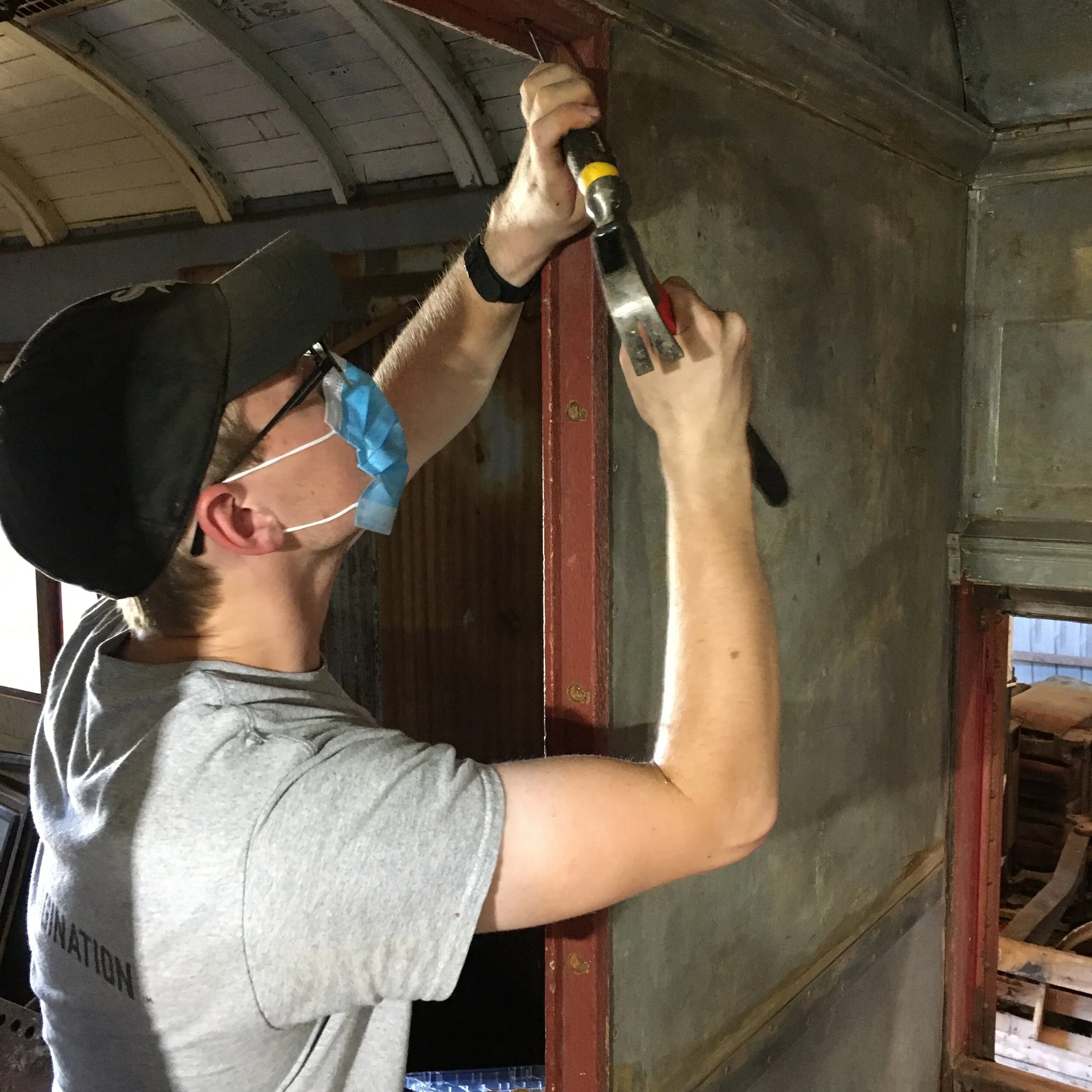The Hoosier Heartland Trolley Company is excited to announce that interurban No. 429 has received a $4,999 Heritage Support Grant from the Indiana Historical Society. The grant project will provide for new boarding steps, baggage room ladders and the iconic “cowcatcher” or pilot on the front, which resembles a snowplow and prevents objects from being caught underneath the train.
Electrify 429 update: One of Indiana’s last interurbans lives again
A century ago, Indiana's high-speed interurban electric trains empowered Hoosiers to pursue an education, expand economic opportunity, visit loved ones, quickly ship perishable goods - and, electrify rural communities. For the first time since 1940, more than 83 years later, interurban no. 429 lives again as the only original Indiana interurban operational within the state. This accomplishment is thanks in no small part to two Heritage Support Grants provided by the Indiana Historical Society and made possible by Lilly Endowment, Inc., more than 3,500 volunteer hours and nearly $100,000 in total contributions.
$40,000 grant awarded for Indiana interurban car to operate for first time in more than 80 years
Interurban No. 429 has received a $40,000 Heritage Support Grant provided by the Indiana Historical Society and made possible by Lilly Endowment, Inc. The grant project will allow the car to move and stop under its own power for the first time since 1940, marking a significant achievement on the journey to establishing the state’s only electric heritage railroad. The organization is raising $6,000 for a 15 percent match in new fundraising as part of the grant, amplifying donor impact by more than six-fold.
National Railway Historical Society awards grant for rare Indiana interurban car
Electrify 429, a campaign to revive one of Indiana’s last electric interurban cars, has received a $4,255 grant from the National Railway Historical Society’s Heritage Grant program. The award is made with support from the NRHS Indianapolis Chapter, and is one of 21 national grants awarded from the NRHS convention in Los Angeles, California. The organization is actively fundraising a $1,000 match to coincide with $1,100 in funds already raised for the grant project.
Electrify 429: Indiana Interurban Revival | 2021 Update
2021 was another year of growth and progress for the nonprofit Hoosier Heartland Trolley Company, as the organization not only moved Union Traction Co. interurban no. 429 closer to revival, but also expanded capacity and resources. We hope you find our progress inspiring and consider a tax-deductible donation or membership to support this project, which will facilitate educational, community placemaking and economic development opportunities for Hoosiers.
Electrify 429 : Indiana Interurban Revival | Fall 2020 Update
HHTC’s tremendous volunteers have worked on average three to four days per week, collaborating in small groups with COVID-19 precautions. Careful planning and project management has enabled the near completion of Phase One, cosmetic restoration of the car’s interior smoking section, along with the beginning of Phase Two, mechanical and electrical restoration of the car to operating condition.
Heritage Support Grant awarded for mechanical restoration of rare Indiana interurban car
The Hoosier Heartland Trolley Company is excited to announce that Electrify 429 has received an $8,000 grant from the Indiana Historical Society’s Heritage Support Grant Program; in addition to a $1,200 match from a private trust and generous donors. Heritage Support Grants are provided by the Indiana Historical Society and made possible by Lilly Endowment, Inc.
Grant awarded for Indiana interurban car from the Tom E. Dailey Foundation
The Hoosier Heartland Trolley Company is excited to announce that Electrify 429 has received a $3,000 grant from Tom E. Dailey Foundation. Electrify 429 is a capital campaign for the operational restoration of one of Indiana’s last interurbans – an intercity electric railway car. This grant will be applied towards the cosmetic restoration of the car’s smoking section as phase one of a four-phase restoration plan, which is already underway at a private facility near Indianapolis.








